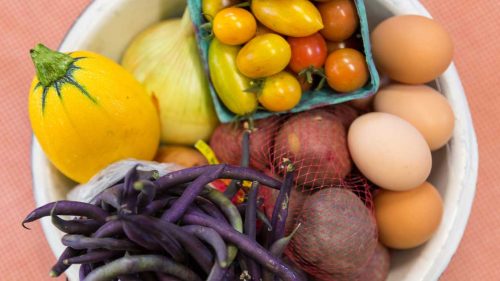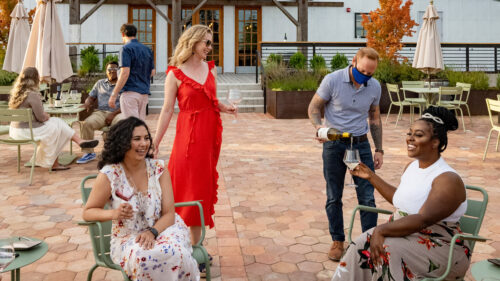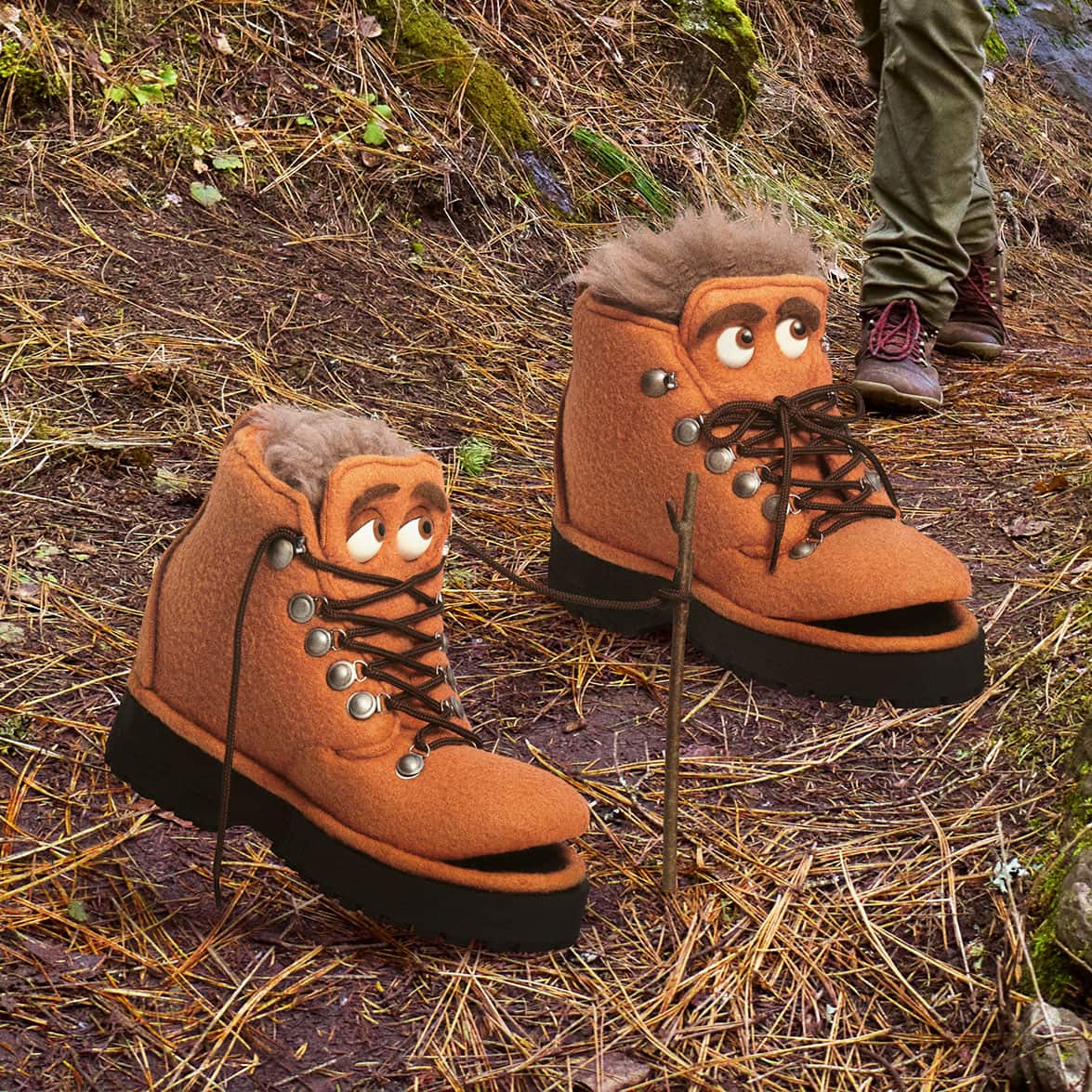Editor’s note: Oregon’s COVID-19 restrictions have eased, but businesses may ask you to wear a face cover – bring one along and be patient and kind if asked to wear it. It’s also wildfire season – plan ahead and do your part to prevent wildfires.
At the start of the COVID-19 pandemic, Anne Hubatch, owner of Helioterra Wines in Portland, had been sitting on a few pallets’ worth of wine and was trying to figure out a way to move it. The idea of using pouches came together when she planned to join a multiday rafting trip: Alcohol was allowed, but it couldn’t be in a glass container. “Then I found these pouches, which are actually refillable growlers,” Hubatch says. The pouches are 1.5 liters in volume, the equivalent of two bottles of wine, but weigh less than a bottle.
The resulting product, made from partially recycled materials, has been ideal for consumers who just want to enjoy a glass at a time, since the pouch won’t oxidize as you drink it. “It was one of the problems that I had to solve with COVID-19,” she says, and an innovation she plans to keep around for good. She’s not alone.
As Oregon winemakers have adapted during this time, many have tried alternatives to the traditional glass bottle as a way to serve consumers at home while also saving on cost and embracing their brands’ sustainable ethos. It’s a continuation of their dogged pursuit to refining and improving the experience of enjoying Oregon wine.
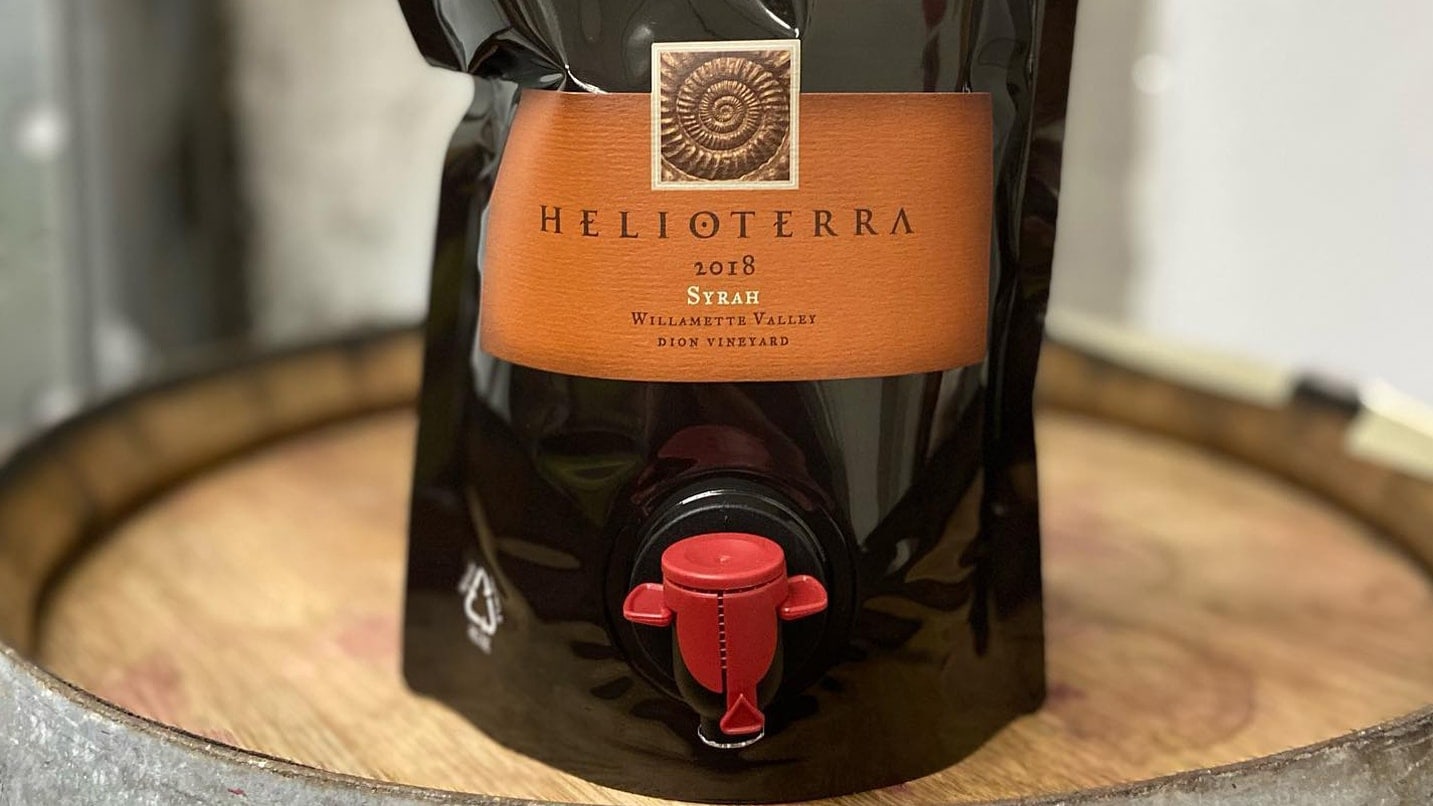
Like Helioterra, Portland’s Jackalope Wine Cellars and One Love Cellars in Turner have also adopted wine pouches. Tasting kits and flights are another growing phenomenon across Oregon for couples or groups of friends longing for the social aspect of wine tasting. Michelle Kaufmann at Stoller Family Estate in Dayton was looking for a way to “bring that little bit of wine country out to the people” when they couldn’t seat customers in their tasting room. Their tasting kit ($25 to pick up; $30 to ship) includes five rotating wines which include QR codes so customers can learn more about a specific vintage. Adelsheim Vineyard in Newberg offers an at-home tasting flight ($35) with downloadable tasting cards and instructions.
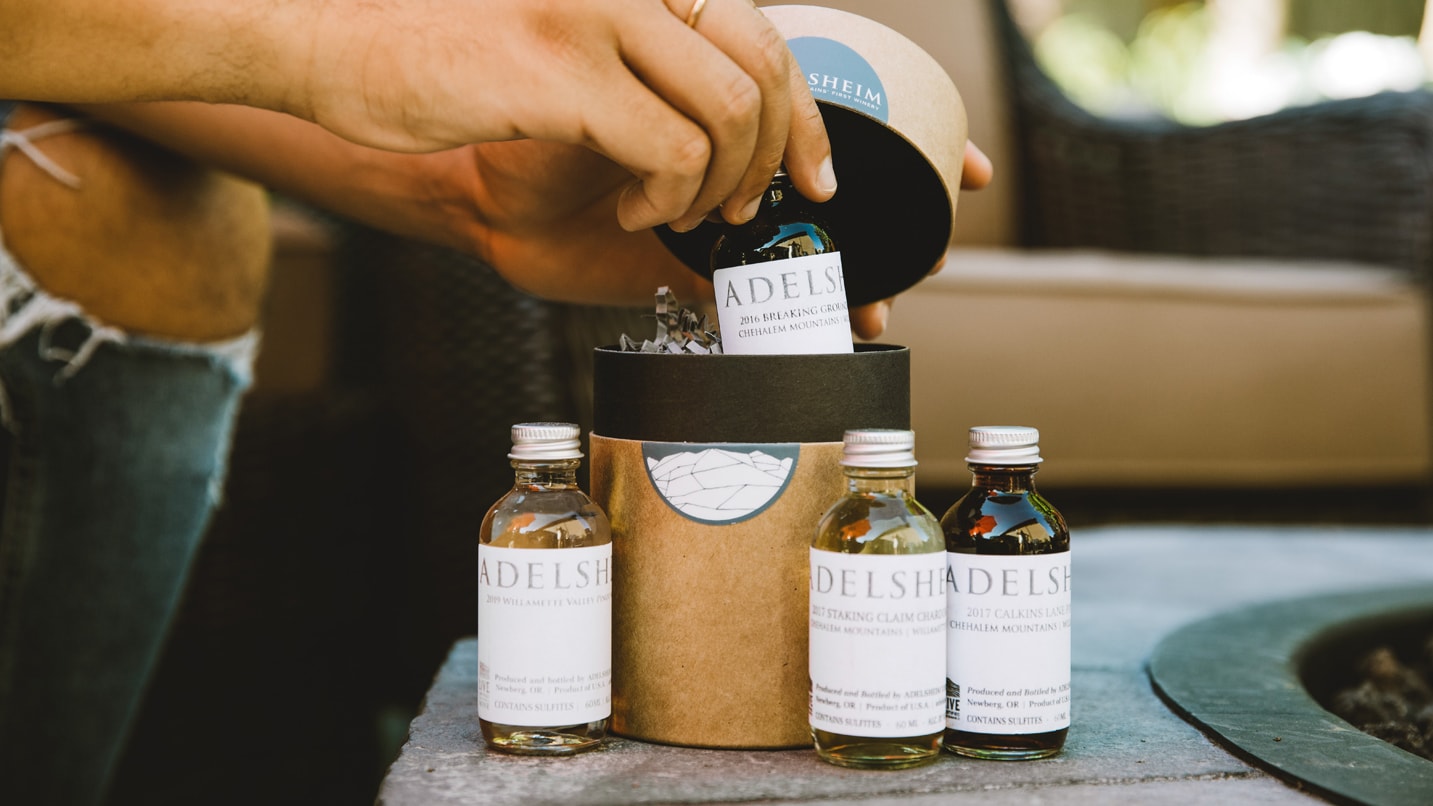
Many top wineries have experimented with boxed wine as a sensible option that consumers appreciate. “You’re able to more conveniently preserve a wine for a longer period of time and have it on a casual basis,” says Herb Quady, owner of Quady North in Jacksonville. “We find that the [boxed] wine stays fresher, so to speak, for about a month after you crack it to pour your first glass.” The boxes — or rather, a 3-liter bag inside of a box — also save on packaging and shipping costs, he’s found. Other popular boxed wines include Evolution, made by Sokol Blosser, and a farmhouse red by David Hill Winery in Forest Grove.
Canned wine, beer-style bottles and wine growlers have also been gaining ground. Canned Oregon, made by Stoller Family Estate, is targeted toward outdoors enthusiasts, and Tualatin’s Union Wine Co.’s Underwood label is sold at various grocery stores at super-affordable prices. Wine by Joe in Dundee offers a line of canned pinot gris, rosé and pinot noir called Joe to Go. One can holds the equivalent of two glasses of wine and usually costs around the same as one pour.
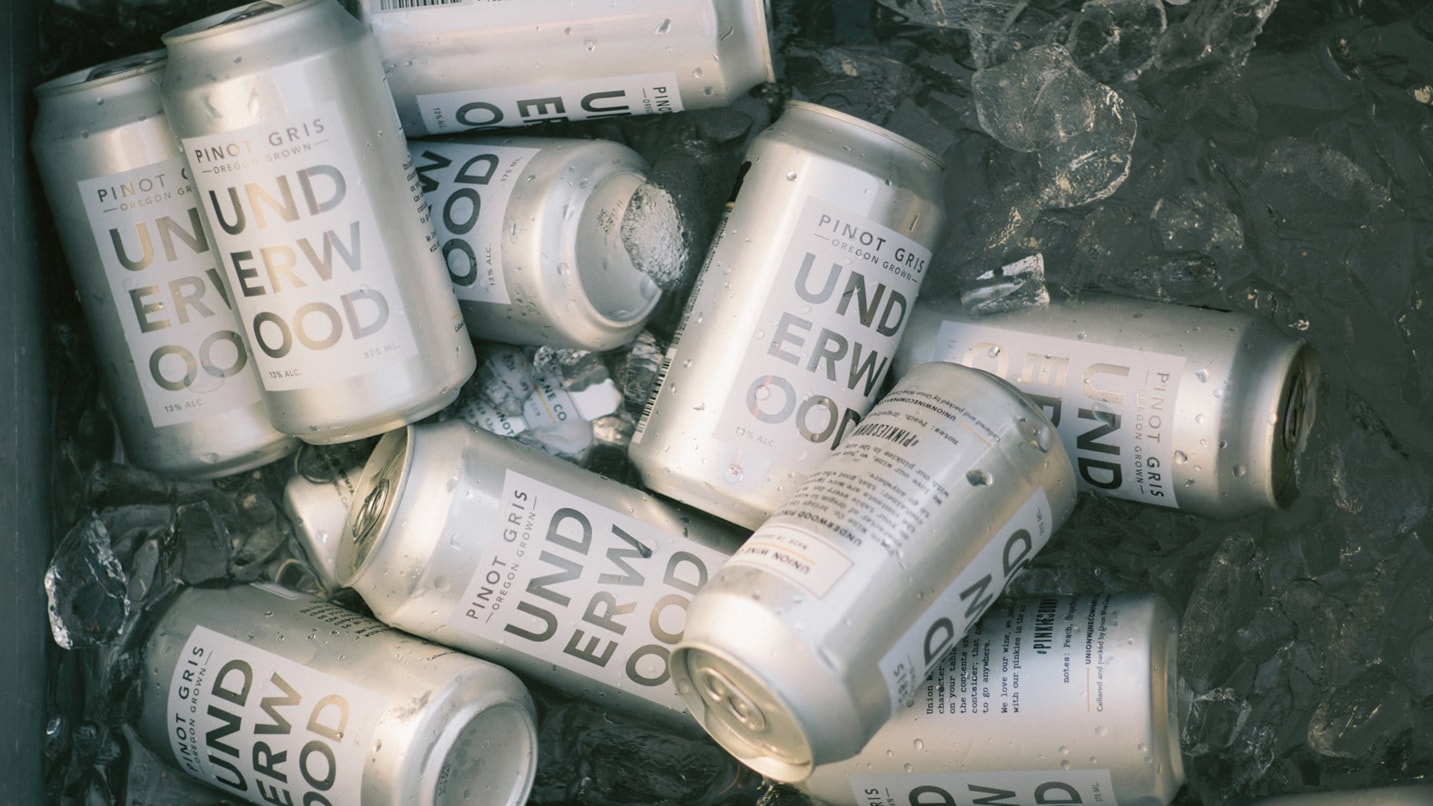
Environmental friendliness has been a major drive toward beer-style bottles of wine. Pierce Wines in Salem sells its riesling in 500-milliliter glass bottles, which are returnable for a 10-cent refund in Oregon and can be refilled 25 times when returned to an Oregon Bottle Drop. As part of its 2019 PORCH series, Amity winery Varnum Vintners sells 12-ounce bottles ($10) of its sparkling red Porch Secco and brut Rosé Porch Pink. The series is also available as a tasting flight ($50). Finally, growlers have been a favorite vessel for wine for a while and aren’t going away any time soon. Fill up your custom growlers at Black-owned winery Abbey Creek Vineyard in North Plains and downtown Portland, Coopers Hall in Portland or David Hill Winery in Forest Grove.
